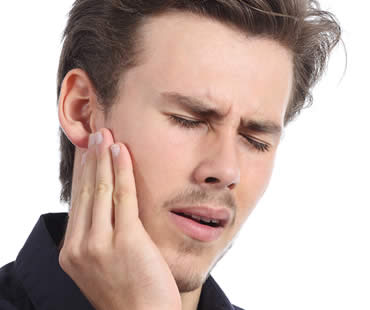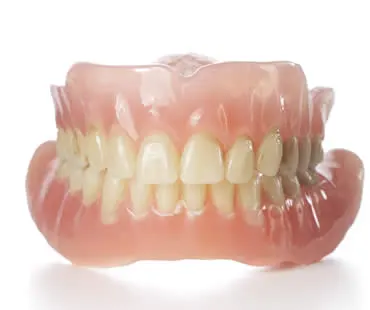
May 23, 2023 | Blog, Cosmetic Dentistry, Dental Topics 2
Has your child been bothered by some issue with his or her teeth? Has there been bullying or teasing about a smile issue? Cosmetic dentistry may be the solution for these problems. Teens can benefit from a healthy, attractive, white smile. Benefits can include increased self-esteem and greater ease with public speaking and social interactions. Some cosmetic dental procedures can correct problems that began when teens were pediatric patients. Others can address issues of alignment or shape.
The most common cosmetic dental procedure pursued by young people is braces. Braces are so common now that in middle school, it seems as though more students have braces than do not. Even in elementary school, braces can be an option toward achieving a straight smile.
Some teens naturally have discolored teeth that can benefit from teeth bleaching or whitening. Medications and foods and drinks can affect tooth color. Most dental professionals prefer to whiten only permanent teeth that are fully erupted. The primary concern about whitening teeth for young people is that the teeth are also “young” and that the pulp is closer to the surface than in adult teeth, leading to heightened sensitivity to the products used to achieve whitening.
If your teen has suffered trauma to the teeth from playing sports or in an accident, bonding with resin composite or porcelain veneers could be the solution. Dentists can also provide mouth guards for protection while engaging in some activities, such as football or hockey. Be sure to contact your dentist immediately following any new trauma so your teen’s teeth can be properly evaluated.
If your child has a missing tooth, either from trauma, decay or congenital issue, your cosmetic dentist might recommend a dental bridge or dental implant. Bridges can be used at an early age, but dental implants are only for mature mouths with complete bone growth.
If your child has issues regarding the appearance of his or her smile, make an appointment with your dentist today to discuss what cosmetic dental treatments are best to treat those problems.
If you live in the Birmingham area contact us today

May 16, 2023 | Blog, Dental Topics 2, Implant Dentistry
After suffering tooth loss for any reason, it’s important to restore your mouth’s function and appearance with restoration options through your dentist. In the past, many patients have gotten dentures for this purpose. Dental implants provide a newer and very popular option. If you already have dentures but aren’t completely satisfied with them, is it possible to change to dental implants instead?
The answer is yes! Of course, you need to consult your dentist to make sure that you are a good candidate for implants. There are a number of reasons that denture wearers might decide that implants are a better solution to their tooth replacement needs. Some patients find dentures to be uncomfortable because they don’t stay in place securely or they irritate the gums. Some find a more permanent remedy to be more appealing than dentures, and implants do provide a long-lasting solution to tooth loss. If patients with dentures don’t like them and aren’t wearing them consistently, they aren’t achieving the goal of restoration.
There are some additional complications that can occur with dentures, making implants more appealing. Trouble speaking and eating is a hazard if the dentures slip, as well as jawbone loss and increased wrinkles. Some patients even alter their diets due to problems eating certain foods. The increased dental hygiene regimen also bothers some patients who are unwilling to do the extra tasks required.
If you dislike your dentures, consider making the switch to dental implants. It might restore your self-confidence as well as your mouth’s function and appearance.
If you live in the Birmingham area contact us today

May 9, 2023 | Blog, Dental Topics 2, Emergency Dentistry
Problems with your mouth or teeth can occur suddenly. You might be injured playing a sport, eating, or even just while doing a seemingly harmless activity. You should know what types of dental problems are considered emergencies, and what to do while waiting to see your dentist. Quick action can make a big difference in saving a tooth, or limiting damage to your mouth or face.
What is considered an emergency?
Not every dental problem must be treated as an emergency, but some do require professional treatment as soon as possible. This includes a broken or knocked out tooth, lost crowns and fillings, severe toothache, infection, and injuries to the soft tissues of your mouth.
What should I do?
See your dentist as soon as possible to treat the problem and prevent further damage. Here are some steps to take if you experience any of the following common dental emergencies:
- Severe toothache – rinse your mouth with warm water and floss to remove trapped food.
- Swelling – apply a cold compress on the outside of the swollen area. Do not place any painkiller or aspirin against your gums, because it can burn your gum tissue.
- Chipped or broken tooth – if possible, save the piece that has broken off. Rinse both the piece and your mouth with warm water. If it is bleeding, hold gauze on the area. Apply a cold compress to relieve pain and reduce swelling.
- Lost filling – apply dental cement from your drugstore to fill the hollow area until you can see your dentist. Or, try placing a bit of sugarless gum into the area.
- Lost crown –try to replace the crown on your tooth and hold it in place temporarily with dental cement, denture adhesive, or toothpaste.
- Abscess – infections in your mouth can become abscessed, which is a serious condition. Rinse with warm salt water and see your dentist immediately.
- Soft tissue injuries – treat damage to your gums, cheeks, tongue and lips by rinsing with warm salty water. Hold gauze to the specific area to control bleeding, and hold a cold pack to the external area.
We look forward to seeing you in our Birmingham dental office

May 2, 2023 | Blog, Dental Topics 2, Dentures
If you’ve been wearing dentures for a while, you may have some complaints. They might fit poorly and shift or click when you talk or eat. Poor fit can lead to discomfort and sores in the mouth that worsen over time, or they can collect food underneath them, leading to bad breath.
If this sounds familiar to you, there might be alternatives for you. One of the newest developments in dentures is the pairing of standard dentures with dental implants. The dental implants are placed directly into your jawbone, providing the kind of stability only previously offered by natural teeth. Dentures fixed in the mouth with dental implants become something new: hybrid dentures.
Dentures that utilize dental implants as their anchors are very stable. They enable denture wearers to enjoy foods previously denied them, such as crisp, healthy foods or chewy cuts of meat. Eliminating the food restrictions present for many denture wearers allows them to eat a wider variety of foods, helping to reduce the risk of poor nutrition and the poor health associated with it, including digestion difficulties.
Because of this increased stability, the denture itself can be made smaller. A standard denture covers the roof of the mouth completely, inhibiting the taste and texture of foods. A denture designed around dental implants, however, has an open roof and facilitates a greater enjoyment of foods of all kinds, as well as a more natural feel for your tongue.
Dental implants also stimulate bone by mimicking natural tooth roots. This stimulation allows the bone to continue to be strong and alive, whereas the bones of the face can begin to shrink once a tooth has been extracted. This bone shrinkage leads directly to poor denture fit. Dental implants used with dentures avoid this issue.
If you are a denture wearer and you’d like to see some changes in how your dentures fit, talk to your dentist to see how using dental implants can improve your denture experience.
We look forward to seeing you in our Birmingham dental office

Apr 25, 2023 | Blog, Dental Topics 2, Emergency Dentistry
Having an accident that involves your teeth can be one of the scariest types of trauma. It’s not only painful, but brings to mind images of a broken or gapped smile. Unfortunately, reports suggest that over half a million people seek treatment in the emergency room each year for dental related issues. Many emergency rooms are not equipped or trained to handle dental problems, so sometimes all you can do is wait to see your dentist.
Since it’s impossible to know exactly when an accident will happen, it’s a good idea to be prepared with items helpful in a dental emergency. Suggested items to include in a dental emergency kit are gauze, Q-tips, salt packets, a small container, over-the-counter pain medication, and sugarless gum. Also include the phone number for your dentist.
If your mouth is damaged in an accident, first rinse your mouth with warm salt water. Follow the directions on the label to take pain medication if necessary. If inner parts of your tooth like the nerves or dentin have been damaged, try covering the area with sugarless gum to protect it until you can get professional treatment.
Sometimes oral injuries can be handled at home until your dentist is available, but more serious situations require seeking care immediately from an emergency dental facility. Some symptoms that usually suggest immediate treatment include facial swelling that is accompanied by a toothache, or uncontrollable bleeding.
If your tooth is knocked out, find it and rinse it with water. Gently try to replace it in the socket. If it can’t be reinserted, place it in a small container with milk or slightly salty water. Ideally, you need to see your dentist within the first couple of hours in order to restore a dislodged tooth.
Following this advice for emergency dental care will help you handle the situation more calmly and know what to do if it happens to you or someone you are with.
Our dental office is located in Bingham Farms

Mar 25, 2023 | Blog, Dental Topics 2, Dentures
Have you lost all or most of your teeth due to damage, disease or decay and don’t find traditional removable dentures an attractive option? Implant-supported hybrid dentures are an alternative to traditional dentures that provide a secure and stable prosthetic replacement for missing teeth by combining the benefits of a fixed replacement with the advantages of a removable denture. Hybrid dentures are an especially viable option for patients who have lost a large amount of jawbone due to missing teeth. Some of the benefits of hybrid dentures include:
- Hybrid dentures save your natural roots and preserves bone while reducing bone resorption and deterioration.
- Hybrid dentures help to control facial contour changes caused by missing teeth.
- Hybrid dentures function more naturally, allowing you to chew food better and speak more clearly.
- With hybrid dentures, there is no need for messy denture creams and adhesives, eliminating much of the embarrassment associated with loose dentures.
- Hybrid dentures eliminate the slippage, clacking and loss of taste associated with traditional dentures.
If you would like fixed teeth to replace teeth that you have lost but are not ready or a candidate for multiple individual implants for each missing tooth, hybrid dentures could be your solution. Hybrid dentures require only a few dental implants to secure the new teeth in place, allowing for quicker recovery time and increased comfort.
If you are seeking an alternative to traditional dentures to replace your missing teeth, talk with your dental professional to determine if you are a good candidate for hybrid dentures. With hybrid dentures, you can successfully restore the look, feel, and function of your natural teeth.
We treat patients from Birmingham and the surrounding area






